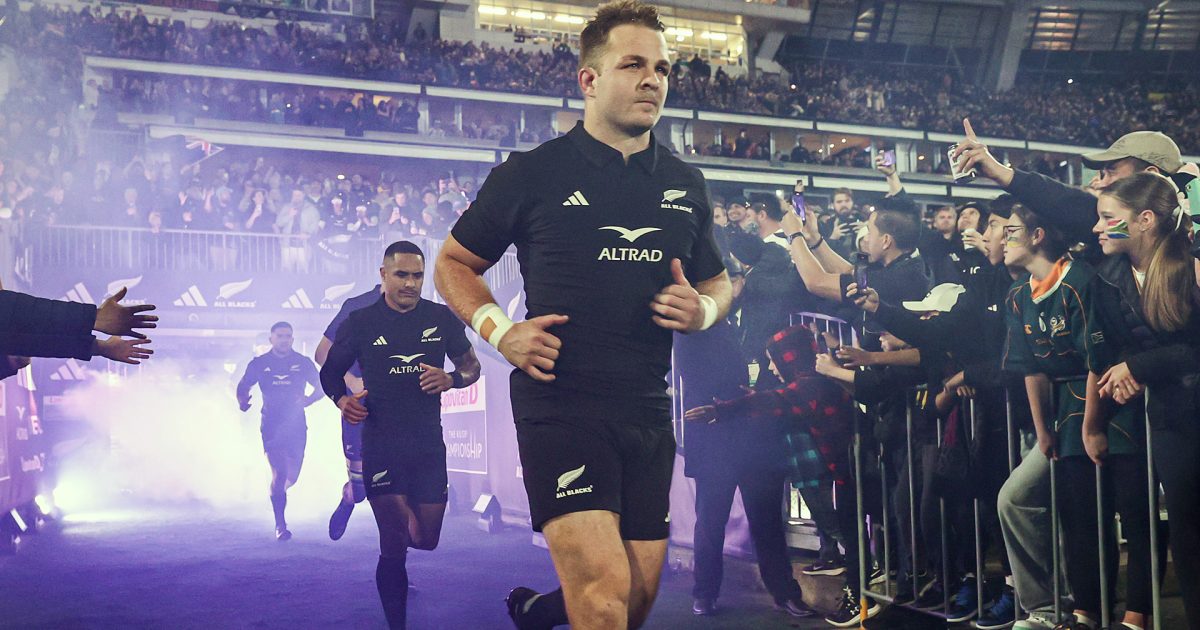'Stung the hell out of me': Sam Cane explains very clearly his role for the All Blacks

All Blacks captain Sam Cane has always had scrutiny with regards to his selection in the famous No 7 jersey.
Cane had massive shoes to fill as the heir to Richie McCaw as the All Blacks openside flanker in 2016, public pressure that only intensified when he took on the captaincy role in 2020 following the retirement of Kieran Read.
The New Zealand public has had an affinity for other No 7s during his career, Ardie Savea of the Hurricanes and more recently Dalton Papalii of the Blues.
However, the Chiefs’ loose forward has remained Ian Foster’s first choice option and team leader which has come with much criticism.
During the infamous Ireland series loss, Cane went after his opposite and World Rugby Player of the Year Josh van der Flier but came off second best.
The 31-year-old opened up with Scotty Stevenson in a revealing interview ahead of his third Rugby World Cup where he offered an insight into what the All Blacks want from an openside.
According to Cane, it is really the off-the-ball involvements that are high on the priority list whilst the more noticeable aspects, like winning turnovers at the ruck, are not part of the ‘key jobs’.
The first is to do with cleaning out the threats at the first ruck following a lineout and scrum.
“I have three key jobs in this team and the first is secure quick ball off our first strike from set piece,” Cane explained.
“I missed one last week [against Australia in Dunedin] and even if others didn’t notice it stung the hell out of me.”
One of the hallmarks of Cane’s game is his physicality in defence, but it is his ability to reload again that is monitored and measured.
The All Blacks have more opportunity to control the gain line the faster the openside can return to his feet to join the line.
“The second is to have the ability to make a tackle and to get back to my feet and into the defensive line to make another,” he said.
“We call those back-to-back efforts, and the statistics we keep around that are very comprehensive. I always want to be at the top in those statistics.”
The last key area is the force inflicted on attacking rucks to help generate quick ball for the attack.
The All Blacks are able to be at their best when the ruck speed is high.
“That third truly crucial area is to make sure I am hitting defenders hard at the breakdown, which then helps our attack set for the next strike,” he said.
“If I can do all those things well I can usually walk off the field feeling satisfied with the day’s work.”
All of three of the core responsibilities can go unnoticed to naked eye which could help explain the public indifference towards Cane as a player.
Only the data around speed can explain Cane’s effectiveness to the All Blacks which is not readily available.















































































This soft media ptopaganda approach is revisionist. One basic difference between Cane & McCaw is that Cane hasn't even filled his own boots. Since 2019 he's only played 21 tests of the 39 ABs test matches. About FIFTY PERCENT. And that doesn't include times he's left the paddock injured such as the Boks at Mt Smart (when he missed the whole 2nd half). This "now you see me now you don't" leadership model has destabilized the ABs to the point where when Cane inevitably gets injured at RWC, I suspect he won't be missed.
I've watched him a lot especially after the criticism got very loud on social media. I always thought him a tackling machine and it's not surprising he's had some bad injuries.
And he does his core roll extremely well, making telling tackles and cleaning out rucks, in the first twenty minutes of a game he's hardly seen if you just follow the ball. I bet the opposition know and feel his presence very well.
There's more to the game than just running with the ball or making turnovers. Often those things happen because the likes of Sam do the unseen hard yards.
The best game he’s had in the past 2 years was the win in SA when NZ had their backs against the wall. He cleared out a couple rucks like a skud missile. He also got back and secured a position on a back three player caught on a counter. When he’s on like that he really opens it up for his teammates.